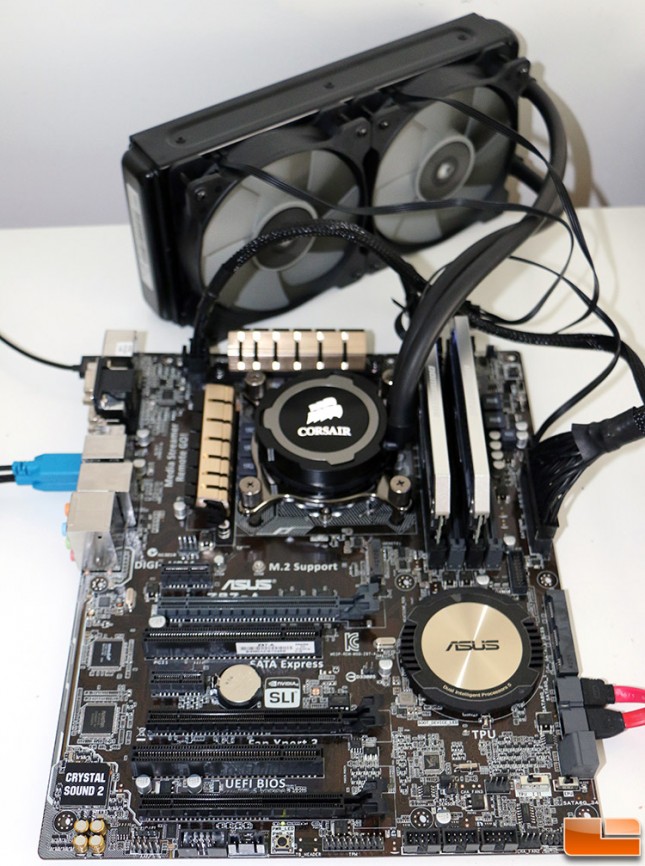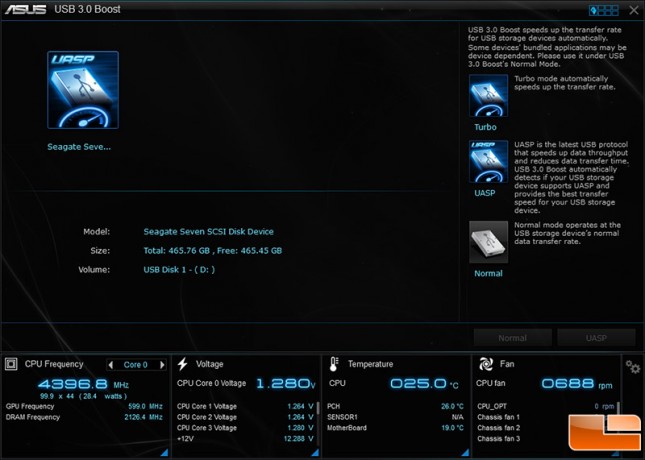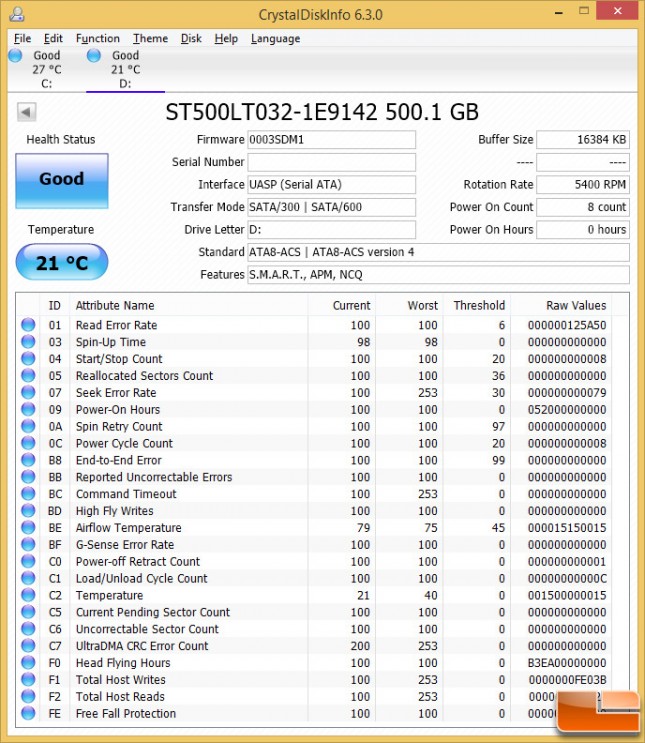Seagate Seven External USB 3.0 Drive Review
By
The USB 3.0 Benchmark Test System
Before we look at the numbers, lets take a brief look at the test system that was used. All testing was done on a fresh install of Windows 8.1 Pro 64-bit and benchmarks were completed on the desktop with no other software programs running. Windows has the power option set to high performance.

The Intel Z97 platform that we used to test the Inateck FD1006C was based around the ASUS Z97-A motherboard with BIOS 1008 that came out on 5/29/2014. The Corsair Dominator Platinum 8GB 2133MHz memory kit was set to XMP 1.3 memory profile settings, which is 1.65v with 9-11-11-31 2T memory timings. The Corsair Neutron GTX 240GB SSD was used as the primary drive (uses 19nm NAND and M310 firmware).
Intel Z97 Test Bench
| Intel LGA 1150 Test Platform | |||||
|---|---|---|---|---|---|
| Component | Brand/Model | Live Pricing | |||
|
Processor |
Core i7 4790k | ||||
|
Motherboard |
ASUS Z97-A | ||||
|
Memory |
Corsair Platinum 2133MHz 8GB | ||||
|
OS Drive |
Corsair Neutron 240GB | ||||
|
Power Supply |
Corsair AX860i | ||||
|
Operating System |
Windows 8.1 Pro 64-Bit | ||||
ASUS USB 3.0 Boost:
We wanted to make sure ASUS USB 3.0 Boost was enabled and opened up AI Suite 3 and sure enough the drive showed up as having UASP support. The Seagate Seven correctly showed up as a SCSI Disk Device in Windows 8.1.
Seagate Seven CrystalDiskInfo:
Let’s have a look at the performance!


